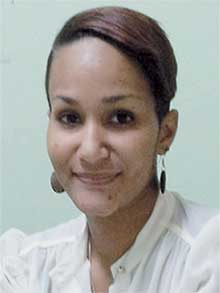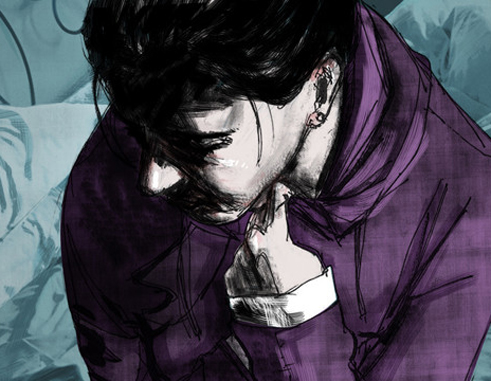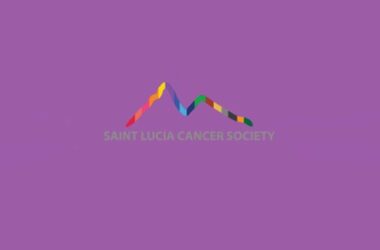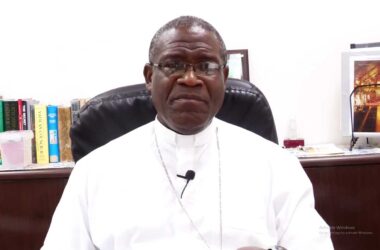
“The nature of sexual violence forces many of its victims to remain silent, to understand that their voices are not welcomed, that as a society, as a family, as their friends or loved ones, we don’t want to understand what they have been through any more than we want to actively acknowledge the existence of sexual violence.”
FOR the purposes of this article, we will continue to use the material from the book, ‘The Courage to Heal: A Guide for Women Survivors of Child Sexual Abuse’ by Ellen Bass & Laura Davis as a foundation. This week’s article deals more deeply with the ways in which survivors of all kinds cope with trauma. As previously mentioned, there are certain aspects of the article that may resonate more than others. The past two articles have explored ways in which many of us as survivors of different things try to cope. Coping mechanisms make room for one to survive the traumatic experience. Coping is what helps a person get through each day. It is important to understand that we each cope in different ways at different times. If you are a survivor yourself, the information presented may connect with you in some way or bring back unwanted or unpleasant memories which may make it difficult to read. If you feel triggered at any point, please put the article down, there is no need to push yourself to try and get through it all in one reading, you may need to take a break, or to stop reading it all together. Always trust your feelings, be gentle with yourself, and take your time. Baby steps.
The nature of sexual violence forces many of its victims to remain silent, to understand that their voices are not welcomed, that as a society, as a family, as their friends or their loved ones, we don’t want to understand what they have been through any more than we want to actively acknowledge the existence of sexual violence, of its predators, or their ability to commit crimes against other human beings and walk freely. The nature of sexual violence forces its victims to remain silent, to pretend that nothing happened. I am not sure if you can begin to imagine what happens when one is violated, when they have to accept that they were violated against their will only to turn around and have the prevailing message be that you did something to cause it and as such you should deal with it silently, pretending it never happened. We ask survivors/victims/thrivers, to continue to sit around the dinner table with their abusers, to share a classroom, to share a work space. We ask them to relive their abuse daily all the while pretending that they weren’t violated by the person standing in the room with them. None of us wants to share the same space with someone who has wronged us, yet we expect survivors of sexual violence to get over their assault and then to mingle effortlessly with their assailant. As a society we either don’t care or don’t want to understand how survivors of sexual violence are truly affected. If we understood, if we cared, we would never put a person who has been traumatized in the same room with the individual who traumatized them, let alone insist that they pretend it never happened. What we are asking survivors of sexual violence to do causes further damage and traumatization.
As previously mentioned, while the articles are directed at survivors of sexual violence we are all survivors of something. Many of us can relate in one way or another to the coping mechanisms being discussed. We can relate to how one feels after a traumatic experience and what is needed to heal and feel safe again. Why then are we so resistant to understanding the needs of survivors of sexual violence but not survivors of other types of trauma? Why is it better to pretend the violation didn’t occur than to actually ensure the perpetrator of the crime is punished? The thought of being sexually violated or of someone you know being violated should be enough for you to want to create an inclusive and safe space for those who have fallen victim to this crime. We should realise that neither dress code, intoxication level, location, religion or profession protects us from being violated. When it happens, as a victim you are shocked that it is happening, most times because the person violating you, you trusted, you loved/liked, you expected safety when with them. We excuse the perpetrator because as a survivor, they are supposed to be mind readers, they are supposed to know that their father, uncle, brother, mother, sister, grandfather was going to sexually violate them. They were to know that their school mate, teacher, coach, priest, doctor, was going to violate them. They were supposed to know that by liking a guy, going on a date, getting in their date’s car, they were consenting to being violated. They were expected to know that their drink brought across by their friend was spiked. They were to be blamed for getting intoxicated and being unable to consent. We blame survivors of sexual violence for the same actions we engage in or have engaged in, the only difference is that it didn’t happen to you, but we know that it could have.
In the article today, we will look at coping through the use of 1) Dissociation, 2) Dissociative Identity Disorder and 3) Spacing Out.
When I speak about Dissociation I refer to our ability to detach from our bodies during traumatic experiences. When an experience is too painful to bare, some of us are able to have an out of body experience, so it feels like you are observing the trauma but not feeling the pain of what is happening.
With Dissociative Identity Disorder, the individual creates an alternative personality or personalities to help them bare the burden of the pain and suffering. DID (Dissociative Identity Disorder) used to be known and multiple personality disorder. The creation of alternate selves allowed for protection of sorts from what was happening. The alternative personality/personalities provided protection, and potentially support when no other avenue for help, protection or support was available.
Lastly, we will look at Spacing Out. When Spacing Out occurs, you are able to withdraw from the present moment. Your body is physically there but your mind is somewhere else. You return and are unable to follow what was happening previously. Spacing Out allows for you to withdraw mentally or emotionally from an experience and to return with little to no memory of what happened while you were gone. This serves to protect you from harmful experiences, shielding them from your conscious mind. Of the three we have discussed the first two appear to be more prevalent in children dealing with trauma. With all of these, the brain has taken over to protect you from what is happening. Understand that if you have experienced any of the coping mechanisms we have discussed thus far, that this is your body’s way of protecting you from the trauma. There is nothing wrong with you. Understanding how you have been affected will help you feel a bit more in control as you begin or continue to heal. We are not here to judge any of you for how you chose to cope. We are here to hopefully educate and validate what you are feeling, what you are going through and how you are dealing with it on a daily basis. Each of us copes in the best way we know how. Each of us is doing what we can to get through the day, to get out of bed. “Coping is what you did to survive the trauma of being sexually abused and it is what you do now to make it through each day.
Next week we will look at a few more. Should there be a specific topic you would like us to cover please feel free to reach out to us.
Survivors of sexual assault need a supportive environment to begin the healing process. They need to believe and feel that they are part of a culture that doesn’t support individuals who commit sexual crimes. We have to be the difference we want to see in our country. We have to be willing to start to make change. We, at PROSAF, have acknowledged that violence against women is a problem in St. Lucia and the wider Caribbean. We are here to begin the metamorphosis that is so desperately needed. We are always here to listen and if you are not ready to come forward but need a listening ear, feel free to contact us. Remember that sexual assault is something that happens to people, it does not define them, rather, it is something that was done to them. Survivors, victims, thrivers… remember you are strong, beautiful and intelligent. You suffered a trauma through no fault of your own. You are not guilty of any crime, something was done to you against your will. You are worthy of love and happiness. Always remember that you are not alone, that you have nothing to be ashamed of. We are taking the baby steps necessary to make it better for all. If you are interested in finding out more information about sexual violence and what you can do as part of this community, please feel free to contact PROSAF.



![Simón Bolívar - Liberator of the Americas [Photo credit: Venezuelan Embassy]](https://thevoiceslu.com/wp-content/uploads/2025/12/Simon-Bolivar-feat-2-380x250.jpg)






